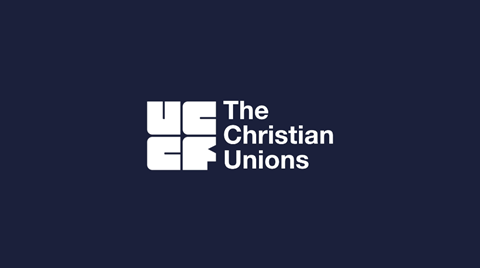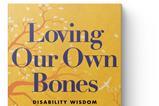Two directors have been suspended from the organisation that oversees Christian Unions in the UK. Having read the statements, Tanya Marlow is concerned that UCCF's investigation may not be as independent as has been suggested. She believes a change of approach is needed

We’ve all been reading about Soul Survivor, but another situation is rumbling on in the background without fanfare. Two directors of UCCF (the university Christian Unions organisation) are currently suspended, pending investigation.
In December 2022 UCCF’s Trust Board quietly wrote to its supporters to tell them that they were investigating “various allegations” regarding Richard Cunningham (National Director) and Tim Rudge (Field Director).
The UCCF board had suspended these leaders in the interests of good practice while they found a lawyer to conduct an “independent investigation”.
I initially found UCCF’s statements reassuring because they emphasised it wasn’t sexual abuse. I also had the impression that the complaints had little substance, they were probably malicious and outside of the organisation, perhaps a militant student union with an axe to grind about the organisation. I was impressed by UCCF's willingness to suspend the leaders as an over-the-top response and to have an independent investigation. I thought no more of it.
Then, in May 2023, there was an update. Five months on, the investigation was still ongoing, “to evaluate the validity of the allegations”. Again, this gave the impression that the disembodied complaints were probably false accusations. The statement reassured me that UCCF were just doing the investigation to comply with “all legal checks and balances”.
There was nothing to see here, but they were being ultra-cautious.
Then came the two words that stopped me in my tracks: “internal process”. They wrote, “It is important to note that the investigation is the first step in an internal process… It is not a public enquiry and, as such, the resulting report is confidential to the trustees and separately to Richard Cunningham and to Tim Rudge.”
An internal process meant there was no hostile external complainant, this was coming from current or former employees, which now made sense of why they had appointed an expert in employment law.
I had worked for UCCF previously, and now pictured my fellow colleagues, and what it would have taken to rock the boat by complaining against senior staff.
For the first time, I went beyond the word “allegations” and realised, to my shame, there were very real people on the other end of this. The complainants, for good reason, are not named, but by using passive language and words like "allegations", the statements erase the existence and humanity of the complainants and so implicitly garner support for those who’ve been accused.
Process matters. Statements matter. Words like ‘independent investigations’ matter. The safeguarding organisation Thirty-One Eight warns that so-called “independent investigations” are actually usually no more than internal reviews.
Boz Tchividjian, former professor of law and attorney representing sexual abuse survivors, says it’s crucial that organisations make it clear what they mean by "independent investigation": “An internal review disguised as an independent review ultimately deceives and exploits the very people the process is supposed to empower and serve.”
The UCCF Trust Board initially used the term “independent investigation” but as the report will only go to Tim, Richard and the board and be privately dealt with, it’s reasonable to conclude that what the UCCF board is conducting is no more than an internal review.
What’s the difference? An independent investigation will be genuinely independent, interview all parties, produce a public report and give recommendations that the organisation is obliged to follow. An internal review, on the other hand, uses an ‘investigator’ to interview the complainants, hands the report to those who’ve been accused and to the board or HR committee, and can only make very light recommendations (e.g. for a disciplinary hearing or for extra training), which the organisation is not duty-bound to follow.
In an internal review, who decides what action should be taken? It’s not the investigator, the independent lawyer. It’s the bosses, the boards, the bishops. They can choose to ignore the findings and recommendations report if they want, and still call it an ‘independent review’. And no one would be any the wiser.
From private conversations with hurting individuals, I’ve seen this story played out in Christian organisations time and again. Victims of harassment go through the excruciating process of reliving their trauma to an independent investigator who listens well, does their job well, acknowledges that this isn’t right, and recommends the perpetrator loses their job. The report gets handed to the bosses, who realise there’s a problem, but don’t want to damage the organisation. It’s a Christian organisation, and how much damage would there be to the gospel if it came to light? So they compromise. The bully is given a slap on the wrist and extra training, and the person who complained is told there’s not enough evidence.
Or the bully is encouraged to resign, with no mention of any fault, and is lauded for their ministry and celebrated well. Or they’re given a paid sabbatical, and expected to change their ways after a period of gardening leave. Or they’re promoted to a job where they have less people exposure (but often more money and responsibility). Meanwhile, the survivors pay thousands for therapy to recover, lose their ministry jobs, their church communities, their identity, and often their faith, as they watch their abusers continue to be adored and work in ministry.
Can Christian organisations be trusted to mark their own homework? Are they allowed to call it an independent investigation if ultimately they are not legally obliged to follow the recommendations of the report?
it is incredibly difficult to take drastic action against someone who is essentially your friend
I have no doubt that the UCCF board want to do what is just and think of themselves as trustworthy to adjudicate on these matters – and they may be right. However, boards have a far closer relationship with the directors of an organisation than any staff lower in the pecking order. As I have seen in other situations, it is incredibly difficult to take drastic action, if required, against someone who is essentially your friend. It’s always easier to compromise or take the path of least resistance. It’s why an independent investigation truly needs to be independent.
I don’t know the events that triggered the UCCF investigation, but I do know that the process could be better, and certainly more independent and transparent. I wrote to the UCCF board as a concerned former employee, thinking both of Richard Cunningham, whom I know and like personally, and of the anonymous complainants. With this background, I asked a number of questions to encourage the board towards more transparency. Questions such as "Are the complainants staff or former staff?", "What is the nature of the accusations?", "Are you as the board legally obliged to follow the recommendations of the barrister in terms of action taken, not just read their report and then decide your own consequences?" and "Will the full report be shown to the complainants? If not, why not?"
Chris Willmott, representing the UCCF Board of Trustees, in a very polite email, replied to me: “I cannot comment further on your specific concerns beyond what already appears on the UCCF website. The process that we are in is governed by the law, our own policies and best practice, and so is formal, private and under legal advice…We remain fully committed to as much transparency as possible once the process has concluded.”
Calling for better process may not sound particularly exciting, but often it’s the small things that make the difference between justice and corruption. The complainants in the Soul Survivor case have requested a genuinely independent investigation, questioning the Church of England’s ability to ‘mark its own homework’. Senior staff in the Zacharias Trust believed Ravi Zacharias over the women he’d sexually abused, and it was only an independent investigation that revealed the truth. Jean Vanier of L’arche Trust is another example.
We are consistently shown that boards and senior staff are not able to judge without bias. There is a reckoning coming in the church at large for all the abuse that has gone on behind closed doors. Here’s an opportunity for UCCF to be the first of many to let someone external adjudicate, so that justice can roll like mighty rivers and the truth made known. It’s about time.





































No comments yet